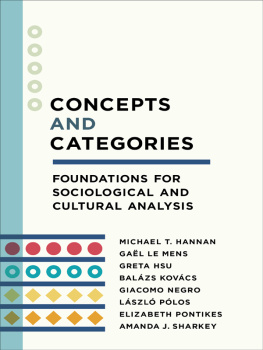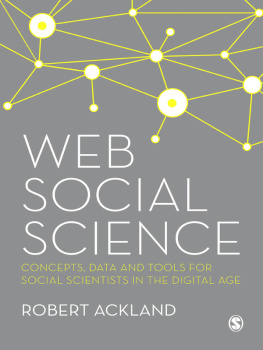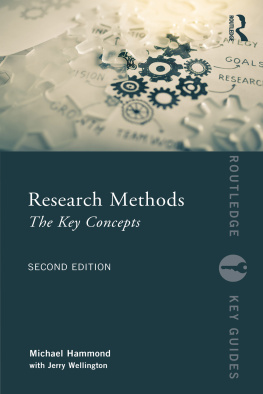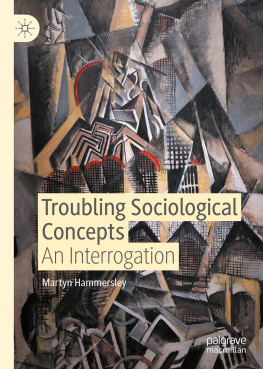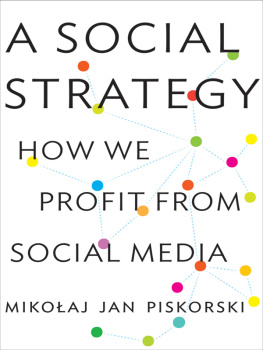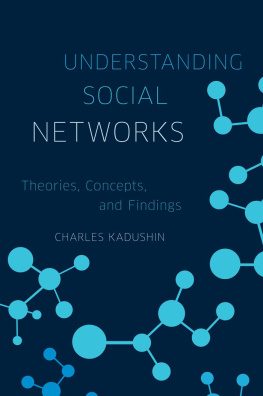Table of Contents
Concepts and Categories
The Middle Range
Edited by Peter S. Bearman and Shamus R. Khan
The Middle Range, coined and represented by Columbia sociologist Robert Merton, is a style of work that treats theory and observation as a single endeavor. This approach has yielded the most significant advances in the social sciences over the last half century; it is a defining feature of Columbias department. This book series seeks to capitalize on the impact of approaches of the middle range and to solidify the association between Columbia University and its Press.
Working for Respect: Community and Conflict at Walmart, Adam Reich and Peter Bearman
The Conversational Firm: Rethinking Bureaucracy in the Age of Social Media, Catherine J. Turco
Judge Thy Neighbor: Denunciations in the Spanish Inquisition, Romanov Russia, and Nazi Germany, Patrick Bergemann
Concepts
and
Categories
FOUNDATIONS FOR SOCIOLOGICAL AND CULTURAL ANALYSIS
Michael T. Hannan
Gal Le Mens
Greta Hsu
Balzs Kovcs
Giacomo Negro
Lszl Plos
Elizabeth G. Pontikes
Amanda J. Sharkey
Columbia University Press New York
Columbia University Press
Publishers Since 1893
New York Chichester, West Sussex
Copyright 2019 Columbia University Press
All rights reserved
E-ISBN 978-0-231-54993-6
Library of Congress Cataloging-in-Publication Data
Names: Hannan, Michael T., author.
Title: Concepts and categories: foundations for sociological and cultural analysis / Michael T. Hannan [and seven others].
Description: New York: Columbia University Press, [2019] | Includes bibliographical references and index.
Identifiers: LCCN 2018061321 (print) | LCCN 2019003474 (e-book) | ISBN 9780231549936 | ISBN 9780231192729 (cloth: alk. paper)
Subjects: LCSH: Categorization (Psychology) | Concepts. | Social psychology.
Classification: LCC BF445 (e-book) | LCC BF445 .H365 2019 (print) | DDC 121/.4dc23
LC record available at https://lccn.loc.gov/2018061321
A Columbia University Press E-book.
CUP would be pleased to hear about your reading experience with this e-book at .
COVER DESIGN:
Lisa Hamm
Contents
FOR MORE THAN A DECADE NOW, this group of coauthors has been studying how categorization affects economic activity. We have sought to understand the role of categories in markets by examining a diverse set of empirical phenomena, such as movie ratings, the entry of software firms into new lines of business, and investor reactions to accounting irregularities. Our research has consistently shown that categorization matters for important outcomes, such as the performance of products and the survival of firms. As a result of this line of work, as well as influential studies by researchers outside this group of coauthors, recognition of the fundamental role of categorization in market exchange has increased dramatically.
This extant work points to cognitive processes in explaining observed social behavior and market outcomes, but it does not delve deeply into the details of cognition. Rather, sociologists have tended to loosely invoke an understanding of categorization that scholars in fields such as cognitive psychology, anthropology, and linguistics have developed with greater clarity and precision. This loose approach was reasonable as a starting point for establishing that cognitive processes involving categorization influence market exchange. However, this research strategy has some drawbacks.
First, sociological work has avoided clearly defining what is meant by concept and category, often conflating the two. Concepts are mental representations by which people classify the entities that they encounter. A category is a set of objects that have been recognized as fitting a concept. How an object is categorized is the realization of a probabilistic process that depends on the set of concepts that the person holds. But this process also likely depends on social and environmental factors; as a result, people often have stable concepts that nonetheless yield varying categorizations of the same object in different situations. Analytically distinguishing between concepts and categories allows us, in our sociological analysis, to apply and extend the rich literatures from other fields. We develop a theory of social categories based on an explicit model of how humans use concepts.
Second, some sociological research on markets gives the impression that individuals, in roles such as consumer, critic, or investor, choose whether to rely on concepts to make sense of the entities that they encounter. These treatments suggest that they use concepts only when they lack more direct information on which to make inferences. This view runs at odds with research on cognition, which makes clear that people cannot avoid relying on concepts. Indeed, humans are hardwired for concept formation, as can be seen clearly in the research on the development of concepts in infancy. So we need to dispel the notion that reliance on concepts is somehow a second-best alternative to collecting and analyzing more detailed information. Concepts are foundational to human cognition and interaction, and relying on them represents a rational use of limited attention and working memory.
Finally, although sociological analysis has prioritized the consequences of categorization, it also needs to examine the genesis and evolution of concepts and categories. We believe that answers to questions about emergence and change require taking the effects of social interaction into account and, in particular, obtaining a better understanding of how the concepts held by one individual evolve as a result of observing the everyday categorization behaviors of other individuals. The lack of a precise model of how categorization occurs at the individual level presents a barrier to understanding the dynamics of concepts. Although we do not treat such dynamics in this book, we think that the foundation we have built will support such important extensions.
With these issues as background, we began writing this book in an effort to better understand and clarify the cognitive foundations of our work on categorization in markets. Our goal is to build a model that formally specifies what concepts and categories are, stipulates how they are used, and draws out the implications for processes of sociological interest. We have learned from sociological applications that it is hard for readers to pin down many germane theoretical constructs, dealing as they do with inherently fuzzy interpretations. This motivated us to strive for clarity, and we devoted considerable attention to building a formal language with the right expressive power.

